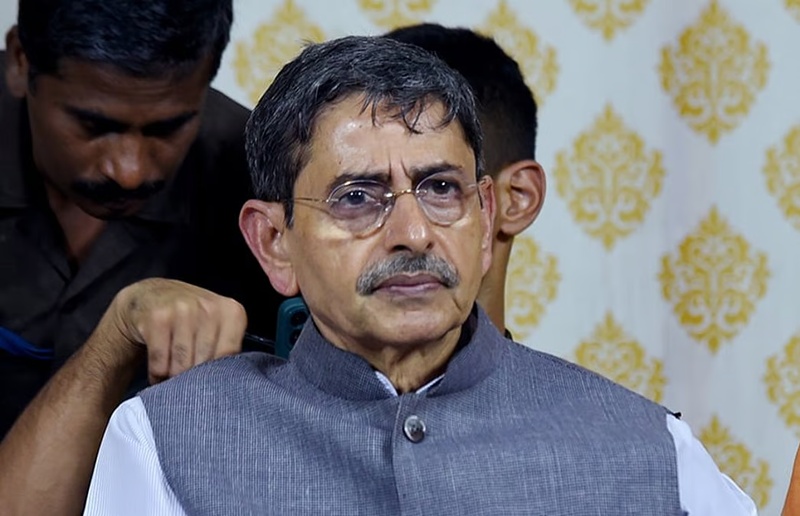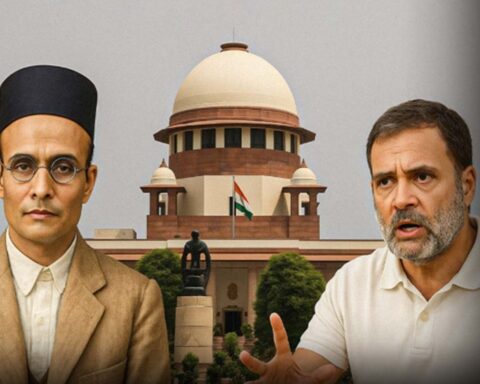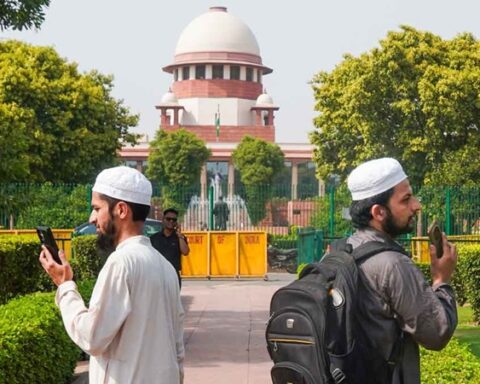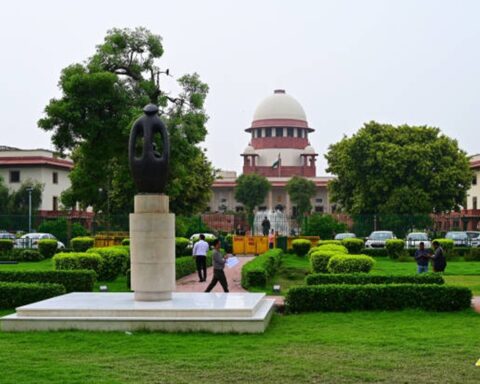New Delhi, Feb 10 (PTI) The Supreme Court on Monday questioned Tamil Nadu Governor R N Ravi’s “silence” before withholding assent to the bills passed by the legislative assembly and wondered how could he refer the “re-passed bills” to the President.
A bench of Justices J B Pardiwala and R Mahadevan posed questions to the Governor, represented by attorney general R Venkataramani, and reserved its verdict on the dispute.
“Why was the Governor silent for years? Why did he not make any communication with the government? Then he withholds his assent and reserves the bills for the consideration of the President,” it said.
It went on to ask, “How could he refer the re-passed bills to the President?”
Venkataramani submitted there was no express provision in the Constitution which restrained the Governor from sending the re-passed bill to the President for consideration.
The delay in giving assent by the Governor had prompted the state government to move the top court in 2023, claiming 12 bills, including one from 2020, were pending with him.
On November 13, 2023, the Governor declared he was withholding assent to 10 bills following which the legislative assembly convened a special session and re-enacted the very same bills on November 18, 2023.
The Governor on November 28 reserved some of the bills for consideration of the President.
On Monday, the top court framed several additional questions for adjudication of the disputes and sought assistance on interpretation of Article 200 of the Constitution, which deals with power of Governor to give his assent to bills, withhold his assent and reserve for the consideration of the President.
The bench also analysed Article 201, which deals with the power of the President, when bills are reserved for his consideration by the Governor and Article 111, which deals with the power of the President to give assent to bills passed by the Parliament.
Senior advocate Rakesh Dwivedi, appearing for the Tamil Nadu government, argued any other interpretation of Article 200 and its provisos would mean a return to the “imperial age”.
“The court has to adopt a constitutional approach and more of an organic approach. The state functions in its own domain through plenary powers and there is supremacy of Parliamentary democracy. These are basic features of the Constitution as interpreted by this court in numerous judgements post 1973 verdict in Kesavananda Bharati case,” said Dwivedi.
He submitted on November 13, 2023, the Governor sent back the bills to the legislative assembly with a one-line communication that he withheld his assent and there was nothing else.
“The state government convened a special assembly session and re-passed those bills on November 18, 2023 and they were reserved for consideration of the President on November 28, 2023 by the Governor with a note that they suffer from repugnancy,” Dwivedi added.
The bench asked the attorney general what would happen when the Governor withheld the assent and did not return the bill to the House. The bill falls, responded Venkataramani.
Justice Pardiwala then asked him how could the bills that had fallen be sent to the President.
Referring to Article 111, Dwivedi argued just like the President, who acted on the aid and advice of the union council of ministers couldn’t withhold the bills passed by Parliament, the Governor couldn’t withhold assent to the bills passed by the assembly.
The Governor lacked any discretion aside from being obliged to act on the aid and advice of the state council of ministers, he added.
Agreeing with Dwivedi’s submission, the bench told Venkataramani that the Governor couldn’t in the second instance refer the bills to the President as he had lost his discretion.
Senior advocate Abhishek Singhvi said if the Governor withheld his assent and returned the bills, with or without giving reasons like it was done in Tamil Nadu’s case, then the assembly was well within its powers to re-pass the bills under Article 200 of the Constitution.
Singhvi said in a parliamentary democracy, the legislative assembly had supremacy in the constitutional sense and the Governor had no discretion under Article 200.
On February 7, the top court flagged the creation of an “impasse” if the Governor withheld his assent on the bills passed by legislative assembly without any communication to the state government and wondered how the deadlock would be resolved.





